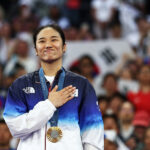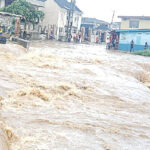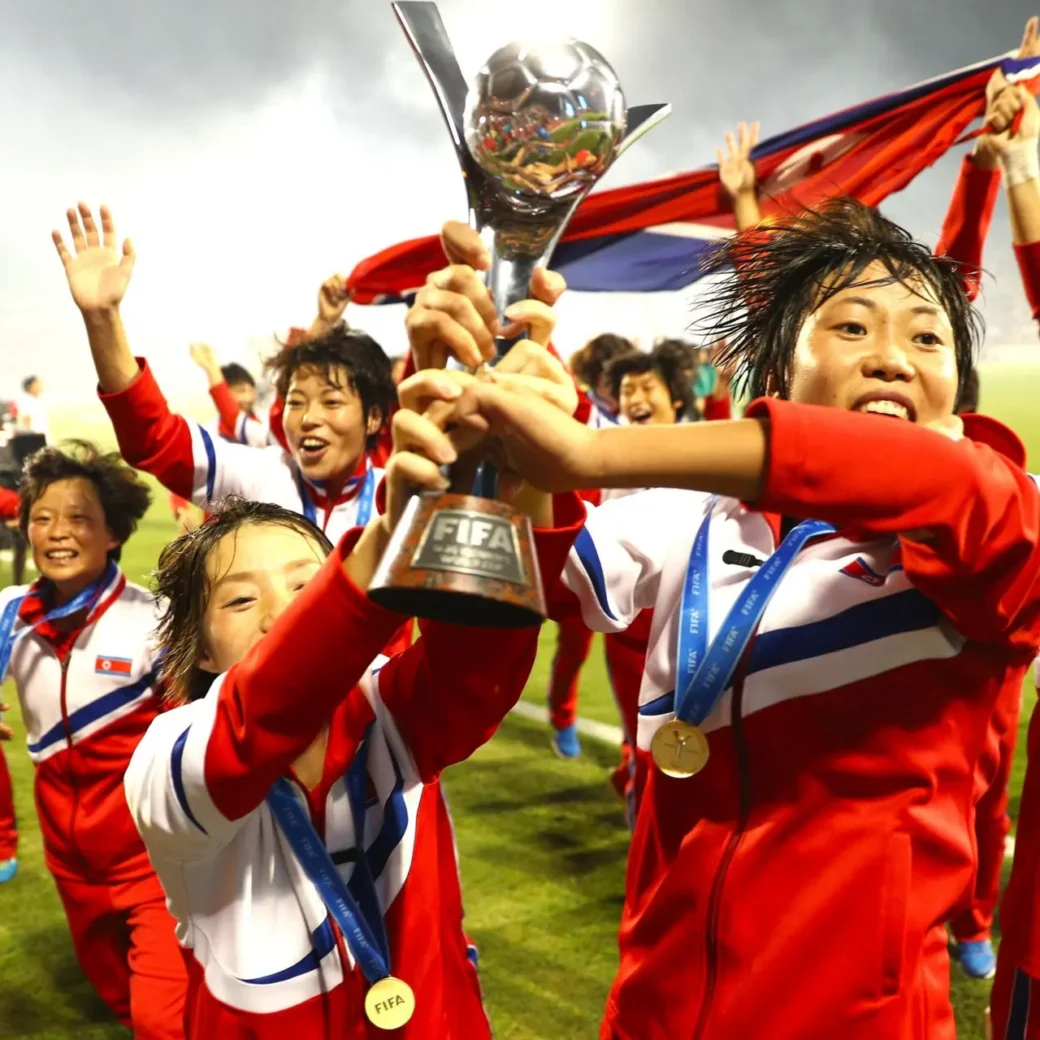
Normally when there are 30 shots in the game, it is the United States with about 25 of ’em. Not today!”
It wasn’t just the ESPN commentator who was shocked.
Heather O’Reilly had scored the game’s final goal, dragging world number ones and two-time champions United States to a 2-2 draw in their opening match at the 2007 Women’s World Cup.
O’Reilly wasn’t surprised by the scoreline though. Or how evenly-fought the game was. She knew it would be tough.
Instead, as the final whistle blew, it was the attitude of the US’s opponents, who saw a chance missed, rather than a point gained, that struck her.
“I remember North Korea seeming disappointed,” says O’Reilly.
“Their body language seemed to say ‘oh my gosh, we were so close to taking down the giant’.”
North Korea is the world’s most isolated country, a state based around the infallibility of Supreme Leader Kim Jong-un and a deep suspicion of the outside world.
Yet, despite living standards being well behind most other nations, North Korea has been one of the strongest female football nations on the planet.
When they took on the United States in 2007, they were ranked fifth in the world and amid a run of three Asian titles in the space of a decade.
Their record at youth level is even better. In 2016, they won the U20 Women’s World Cup, defeating Spain, the United States and France in the knockout rounds. That same year, their under-17 team also lifted their age-grade World Cup.
“The game in 2007 was challenging, really super hard,” remembers O’Reilly of her meeting with North Korea’s senior side. “It was hard to get the ball off them, they were buzzing around, very quick.”
There was another challenge though, one that was unique to North Korea.
“It was just such a cloud of uncertainty,” says O’Reilly. “The film we had on them was very limited, even by the standard of the times.
“Every time we played North Korea, it was always a mystery.”
The mystery now is, after a doping controversy and a four-year absence from international football, can North Korea’s women be a force once again?
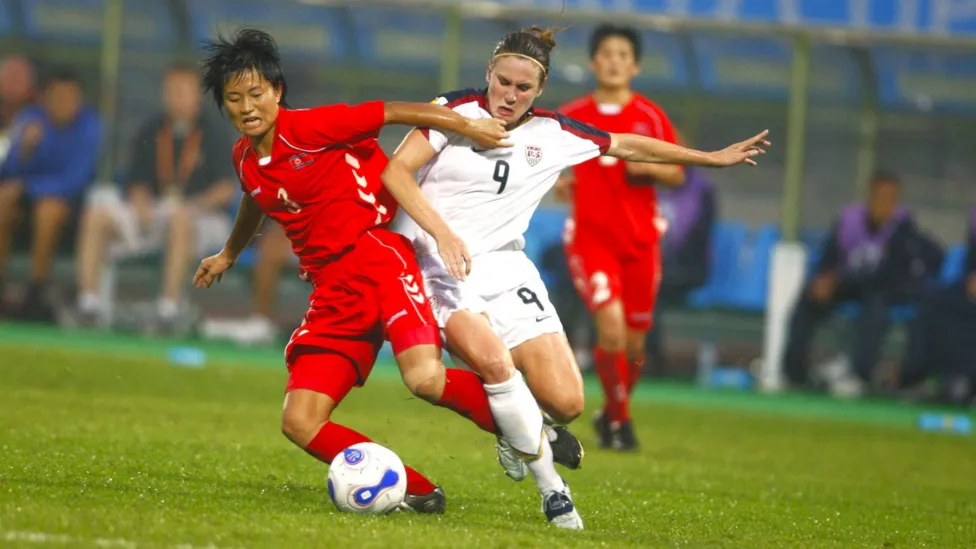
O’Reilly and her United States team-mates may have lacked footage of North Korea. Brigitte Weich certainly doesn’t.
The Austrian filmmaker spent five years following the North Korean team, gaining unprecedented access to its inner workings and players for her 2009 documentary Hana, dul, sed., external
She says that, like with most things in North Korea, the country’s over-sized impact on the women’s game is attributed to the man at the very top.
“The players constantly said to us that the Dear Leader Kim Jong-il [Kim Jong-un’s predecessor] personally supported women’s football,” says Weich.
“Of course, they refer everything directly to the leader and nothing happens without him guiding, supporting or wanting it.
“But it is a very hierarchical and totalitarian dictatorship and I think that is kind of true.”
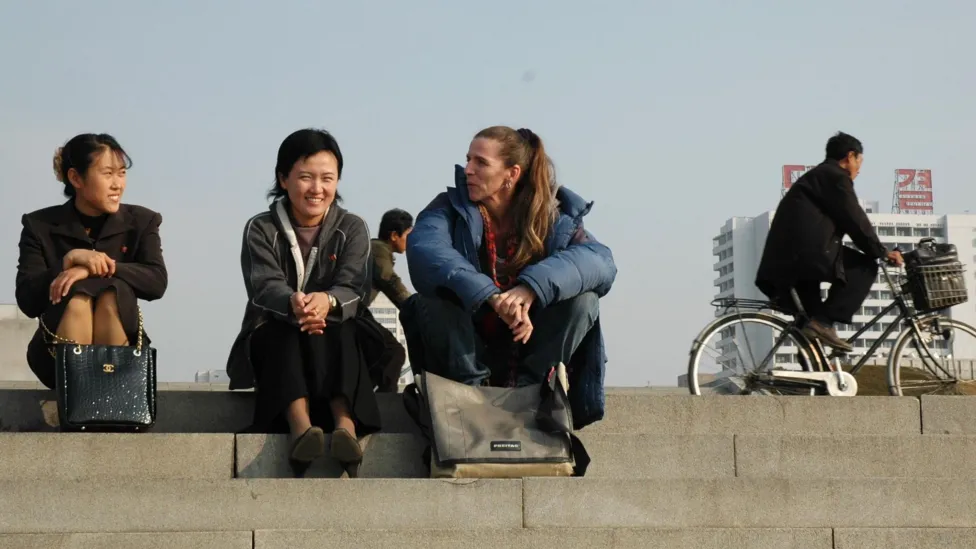
Weich relays a theory that North Korea’s focus on women’s football sprung from a stage in Mexico in 1986.
At that year’s Fifa congress, Norwegian Ellen Wille, only 4ft 11in tall, stepped up to the lectern and started her speech – the first by a woman at a Fifa Congress – with a scream of anger., external
She was infuriated by the sidelining of the women’s game, which had been consigned to half a page in Fifa’s weighty annual report.
She demanded a World Cup for women. Fifa, shell-shocked, agreed. And, the theory goes, the North Korean delegates in the room returned to Pyongyang with a plan.
“Maybe someone came to Kim Jong-il and said to him that we could use this,” says Weich.
“North Korea is not the best in economics, science, human rights and the rest, but in countries like this they can be good at some sports because, from the top down, they can focus on training and nothing else.
“I don’t think it is a total myth that Kim Jong-il had an interest in women’s football, perhaps because he saw it as a chance to show up at a world level.”


